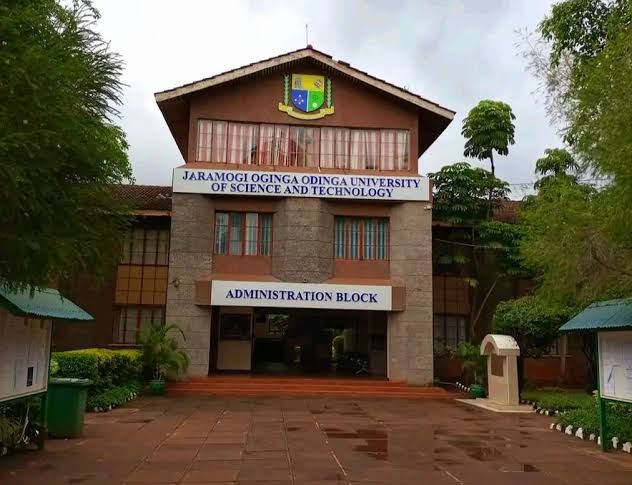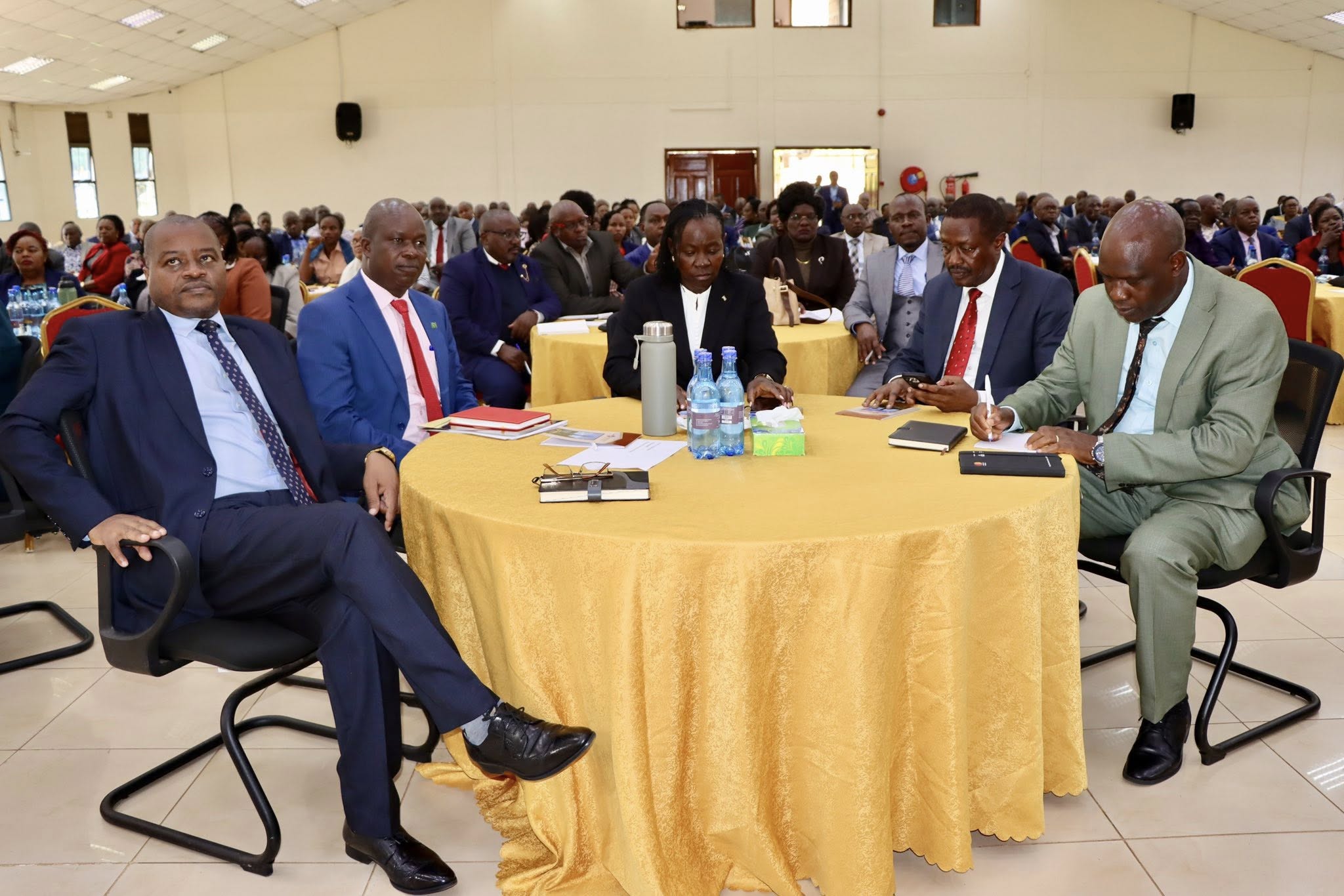As we crisscross across counties in our country, to have a candid conversation with candidates set to sit for KCSE, we listen to stories worth writing about.
There is widespread fatigue and a lack of trenchant zest in some candidates yet teachers expect them to be energetic and enthusiastic in this last lap. Some look anxious as exams edge closer. Connected to anxiety, is stress, which requires some management and mitigation. Tension also keeps tightening like a rigid rope. The most challenging bit is when some candidates lack alacrity, alertness, attention and concentration as teachers show up in class to polish pale parts before KCSE.
The situation shifts from bad to worse when some candidates decide to give up. Yet, the attitude of ‘Never Say Never’ can repair any despair. It is okay to cry but try.
We all nod in perfect agreement that when the bell blares to mark the homestretch, pressure piles up in the candidate class. Meaning that every sedulous student should understand that precious things are products of pressure, not pleasure. Conversely, teachers should understand that deft management of the candidate class means that they take note of the triad preparation for KCSE, which I believe is spiritual, academic and psychological.
Actually, I equate candidates to horses preparing for war. Solomon son of David writes in Proverbs 21:31 that a horse is prepared for war, but victory comes from the Lord. Then in Philippians 4:6-7 Apostle Paul of Tarsus penned to edify brethren in Philippi, “Do not be anxious about anything, but in everything by prayer and supplication with thanksgiving, let your requests be made known to God. And the peace of God, which surpasses all understanding, will guard your hearts and minds in Christ Jesus.”
Indeed, a critical exegesis of that text brings some truths to our attention and concentration. There is anxiety, which is normal for people preparing for a major event in life like an exam. Brother Paul is telling us that orison, as a spiritual discipline, or means of grace, is important when it comes to tackling tension and arresting anxiety.
This explains why schools organise prayer meetings for candidates at the eleventh hour. Prayer firms up confidence and convinces the conscience of candidates that they can wage and win the war. Prayer also plants peace and solace in their mortal minds. It poises them to climb hills ahead more so, in moments of anxiety, tension and fear. Consequently, panic, tension, anxiety and fear of exams — in most cases assail students who lack psychological preparedness. The cure is academic preparation: Content mastery, memory and techniques for tackling exams.
Sometimes, when we talk to candidates, we instruct them to draw a circle with four layers. The inner layer (core) they label as the comfort zone. The second layer from the core is the capacity zone. The third one is the stretching zone. While the outer layer (crust) is the stressful zone. From the diagram, we can conclude that when candidates operate in their comfort zone, stress is far. However, whenever they stretch, they suffer from stress. Every candidate who yearns to scoop good grades has to stretch beyond elastic limits. Going the extra mile is worth it; for no price, no prize.
In a heroic book titled 15 Invaluable Laws of Growth by Dr. John C. Maxwell, there is a law he christens The Law of the Rubber Band, which postulates: Rubber bands are useful because they can stretch. Likewise, human beings also become useful only when they can stretch. Unfortunately, stretching can cause stress.
Ideally, there are two types of stress — eustress (positive) and distress (negative). Distress or acute stress is dangerous. Why? In case we fail to manage it, it can spill into depression. When depression takes a toll on us, it can entice suicidal ideation. Paradoxically, when set for a major event in life, we can suffer from eustress — a form of stress, which is purely positive. Think of a woman in the family way more so, the one who has never wended that way. As she totters towards the pensive delivery room, she can experience a lot in her psyche. She can blow with bliss because she is going to give birth. On the contrary, because she has never been there, she can experience positive stress. This is akin to what some candidates go through when the examination horn honks with might.
Again, when it comes to the science of stress management, candidates should rely on coping skills. In a bedazzling book titled Welcome to Your Brain, Dr. Sandra Amodt and Sam Wang recommend either cognitive or behavioral therapies. The former means that the thought pattern contributes to stress management. The latter means that we should focus on behavioural approaches to tackle tension and handle stress. When feeling overwhelmed, candidates should seek help by opening up to teacher-counsellors and peer counsellors in the school. Guest speakers that visit schools like the weaver of these wise words are also of great help.
Smart sages say that a problem shared is a problem half-solved. Then, it is wise to crave to be at peace with everyone — administration, teachers, prefects and peers. In my moments of philosophising at the Penman Centre in Nairobi, I have come to realise that where there is conflict, there is stress. Trouble is a stressor. It is also important to have quality sleep. Medical practitioners and psychologists recommend 6-8 hours of deep sleep although in a school setup, this may not be the case. Nevertheless, in the process of expanding the learning time, candidates should ensure that they also sleep at night. Why? Because quality sleep improves massive powers of memory. Sleep tackles tension. Sleep mitigates stress. Without quality sleep the previous night, it is impossible to operate optimally the following day. Lack of quality sleep is part of what makes some candidates not to be active and productive. Instead of concentrating, they sleep in class during the day. Laziness and lassitude takes control.
In addition, permit me to posit that sometimes candidates suffer from stress, fatigue, tension, boredom — and such — mainly because of the nature of our school programmes. Think with me before I drop this pen. When they do not participate in games and Physical Education (PE), how do we expect them to be fit like fiddles or sound like bells?
Experts recommend 20 minutes three times a week of vigorous forms of exercise, which can allow blood to flow freely in the body. Back to the treasure-trove Welcome to Your Brain, Dr. Sandra Amodt and Sam Wang contend that physical exercise is not only tied to mental wellness but also to wealth of health. Those sagacious medical scribes describe that lack of physical exercise can lead to stroke. There are two types of stroke. The first type is the hemorrhagic one, which happens when a blood vessel breaks — and bleeds. The second type is thromboembolic, which occurs due to clotting in the blood vessels. Majority of strokes start from a thrombus, a clot that forms in a blood vessel, which hardens due to arteriosclerosis. In all strokes, a part of the brain suffers deprivation of oxygen and glucose, which delivers energy throughout the body. When the flow of blood to the heart halts, for this reason, a stroke becomes a ‘brain attack’.
Somewhat, I do not want to meddle in Medicine because it is not my forte. I do not want to be the proverbial professional charlatan that teaches about good grooming yet he walks stark naked. Mine is a wise use of words. Meaning, I dote on English Language and Literature. Case closed. Although, reading widely makes me know something about major disciplines. While lodging in this hallowed hotel called Earth, I strive to be a Jack of several trades as far as knowledge is concerned. I try to obey the wise words of a certain sage who said, “You should know 1% of 100 things instead of knowing 100% of one thing”. In retrospect, my intention was just to make readers understand why we should create ample time for candidates to engage in exercises. When they exercise, they enhance their manual dexterity and psychomotor skills. In 1983 at Harvard University, Prof. Howard Gardner also argued that physical exercise nurtures body-kinesthetic intelligence. He gelled this brilliant thought in his best book titled Frames of Mind: The Theory of Multiple Intelligence. Later, Thomas Armstrong also christallised this thrilling theory in his beautiful book titled The Seven Kinds of Smart.
Therefore, this is my conclusion; schools should see sense in engaging candidates in field activities as a way of helping them steam off, arrest tension, enhance fitness, manage stress, and increase alacrity and alertness. This calls for creativity and ingenuity. There can be home-grown activities revolving around ball games and athletics. They can also make it full of fun through music, jumping using ropes, sacks and tug-of-war. Advisedly, schools can get a spacious field and invite a team-building and bonding coach to take candidates through activities full of fun, but rife with life lessons.
© Victor Ochieng’
The writer rolls out academic, career, leadership; talks and training services. He also facilitates team building and bonding activities. vochieng.90@gmail.com. 0704420232
Get more stories from our website: Education News
To write to us or offer feedback, you can reach us at: editor@educationnews.co.ke
You can also follow our social media pages on Twitter: Education News KE and Facebook: Education News Newspaper for timely updates.
>>> Click here to stay up-to-date with trending regional stories






